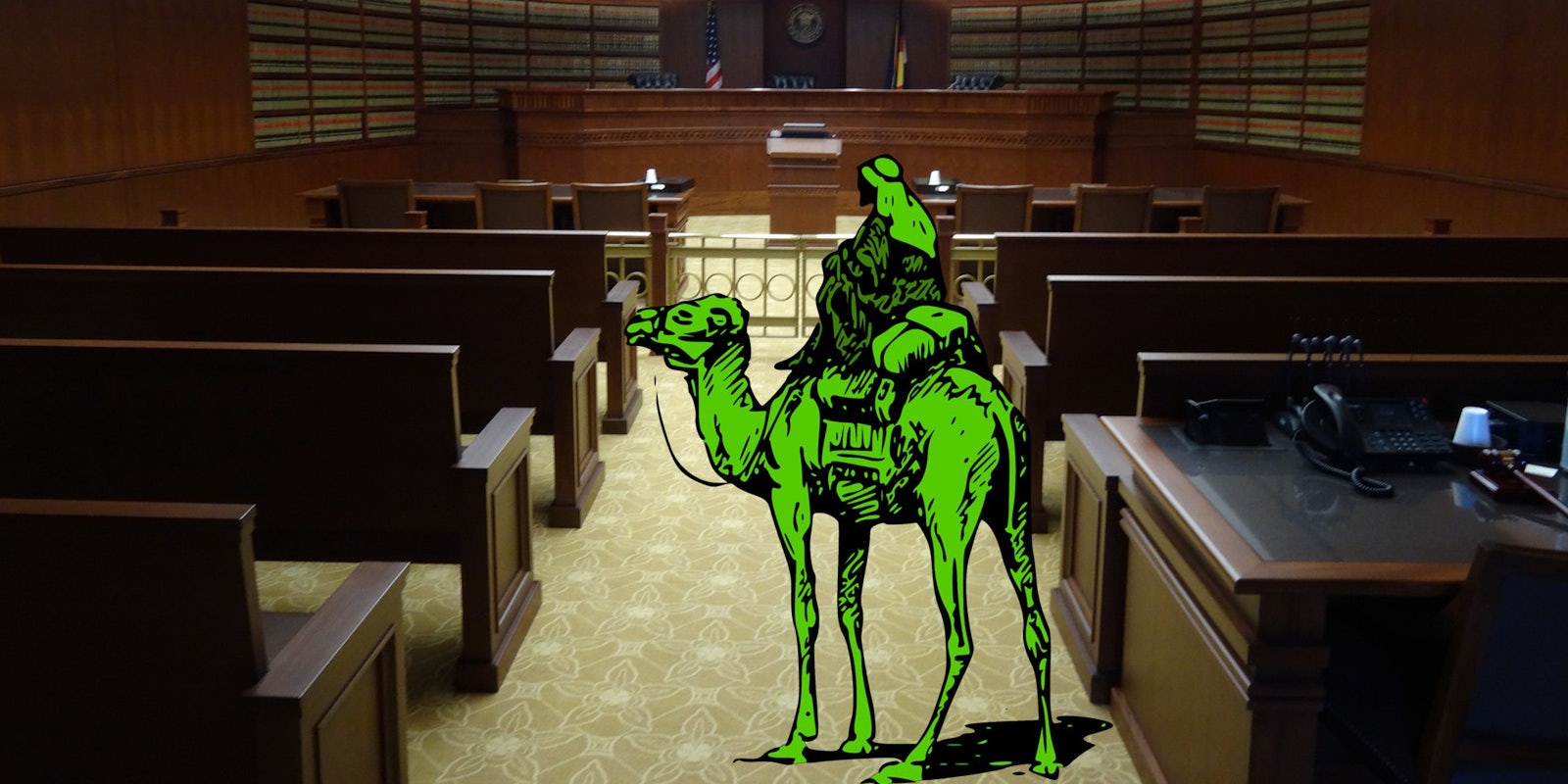Federal prosecutors, facing accusations that they’re lying about how the FBI accessed Silk Road’s servers, have an interesting argument: If we did hack the Deep Web black market, it was perfectly legal because it was a “blatantly criminal” hive and the server was foreign, so constitutional Fourth Amendment protections wouldn’t apply.
One year after Ross Ulbricht was arrested and charged as Dread Pirate Roberts, the notorious leader of the Silk Road, the FBI is claiming that trivial but profound configuration mistakes by Ulbricht led to his capture, Wired reports. Experts have widely criticized the FBI’s explanation, however, saying the Bureau attacked and hacked into Silk Road by forcing the server to mistakenly give up its location.
Speculation surrounding the case has ramped up leading up to the trial, which is scheduled to begin in a month.
The prosecution’s newest filings don’t do much to disprove the critics’ theories; they say the hacking argument is factually wrong but avoid any details.
Instead, prosecutors walked a legal tightrope: They didn’t admit that any hacking took place while simultaneously arguing that if it did, hacking would not have violated the law:
“Given that the SR Server was hosting a blatantly criminal website, it would have been reasonable for the FBI to ‘hack’ into it in order to search it, as any such ‘hack’ would simply have constituted a search of foreign property known to contain criminal evidence, for which a warrant was not necessary.”
Silk Road’s server was located in Iceland, meaning “the Fourth Amendment would not have required a warrant to search the server, whether for its IP address or otherwise,” the prosecutors argued. On top of that, because Ulbricht allegedly broke his Icelandic host’s terms of service, prosecutors argue they had no obligation to protect his privacy.
Judge Katherine Forrest said Ulbricht’s defense has until the end of Tuesday to decide if it will argue that Ulbricht had a proper expectation of privacy. Prosecutors say that would mean an admission of guilt, but Ulbricht could instead claim to have been a user of the site, potentially affording him similar legal protections.
You can read the filing in its entirety below.
Prosecution Response to Horowitz Declaration
H/T Wired | Photo via Jeffrey Beall/Flickr (CC BY-SA 2.0) | Remixed by Fran Berkman


